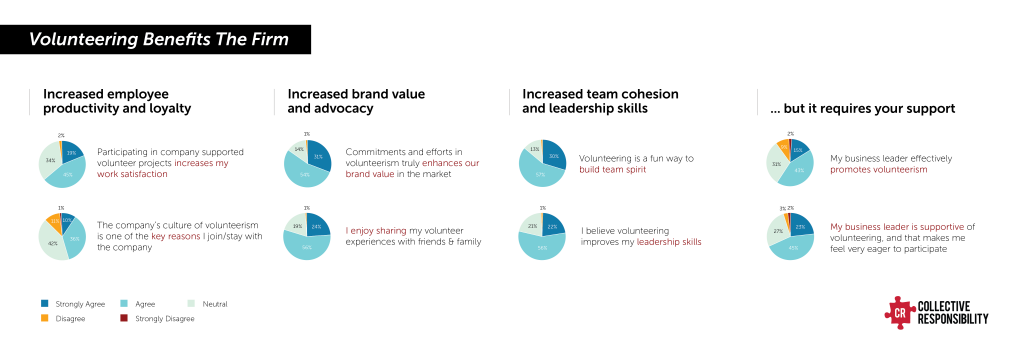“Your employer branding is not what you tell them it is, it’s what they tell you it is”
This is how a recent employer branding seminar began in Shanghai. The premise was to understand the current trends in job seekers’ perceptions of employers, expectations, and preferences from an employer, and how firms can create effective KPIs for employer branding.
While the issues of gender equality and a healthy work-life balance were briefly mentioned, it was not until the group discussion that CSR and sustainability were raised as growing topics of importance for current and future employees.
Here we highlight five KPI-linked reasons why sustainability is key to your employer branding – both internally and externally:
Employees are looking for more than profit
Surveys have shown globally that students and job seekers, while still focused on earning potential and opportunities for promotion, are now looking beyond profit and considering the purpose and impact through their jobs and how their future employers contribute to society. While this isn’t a major factor in China yet, the awareness of environmental and societal issues linked to companies has already begun to have an effect on the employer preferences of job seekers, particularly for high performing Chinese millennials.
Impact increases the retention rate
Retention is a major problem in China, and even more so with the millennial generation who have recently joined the workforce. Jobs without a clear purpose or social value can be moved on from easily if it simply a question of a higher salary. If an employee feels that their role is serving a greater goal and creating impact, they are more inclined to stay at the firm and refer their friends to join.
A survey by Collective Responsibility showed that volunteering through sustainability and CSR programs improved team cohesion and that firms with a culture of volunteering and giving back was the main reason for employee loyalty.
Brand perception is key
How people perceive brands through a firm’s marketing, products, and even CEO will have a direct impact on their perception of the firm as an employer. A company that embeds sustainability throughout its business – whether online, in-store, or in the boardroom – will reflect an employer who cares about more than just business, but also about its community, its customers, and its employees.
The more they care, the more they work
People work harder (and usually better) when they care about what they do. By incorporating sustainability – whether environmental or social – into a role or as a key part of the firm’s vision and mission, and making it engaging, employees will respond through greater productivity. If employees feel purposeful in their work, they will take on the additional workload or go the extra mile to solve the problem.
Volunteering empowers workers
Employees are the ambassadors of a company, inside and outside of the office. Another result of Collective Responsibility’s survey showed that employees enjoy sharing corporate volunteering experiences with friends and family, and this can be the same as their job if it is something they also feel is rewarding. Whether at an industry conference, in a client meeting, or at a birthday party, if employees feel that they are doing impactful work, they will tell everyone about it!
Clear communication of a firm’s sustainability achievements and vision can vastly improve the awareness and perception of a brand as job seekers and employees update their preferences for who they would like to work for. Companies negatively associated with environmental and social issues are going to face more difficulties hiring and retaining their workforce as these employer preferences change, and must start looking to take action now to reduce future hiring costs. Human resources departments have a great opportunity to drive sustainability across a business through its activities, and in doing so can improve the hiring, retaining and productivity or its people.
If you would like to learn more about how sustainability can improve your employer branding, and ways to embed sustainability within human resources, please contact [email protected].
Feature Image Credit: Hong Kong Business School
